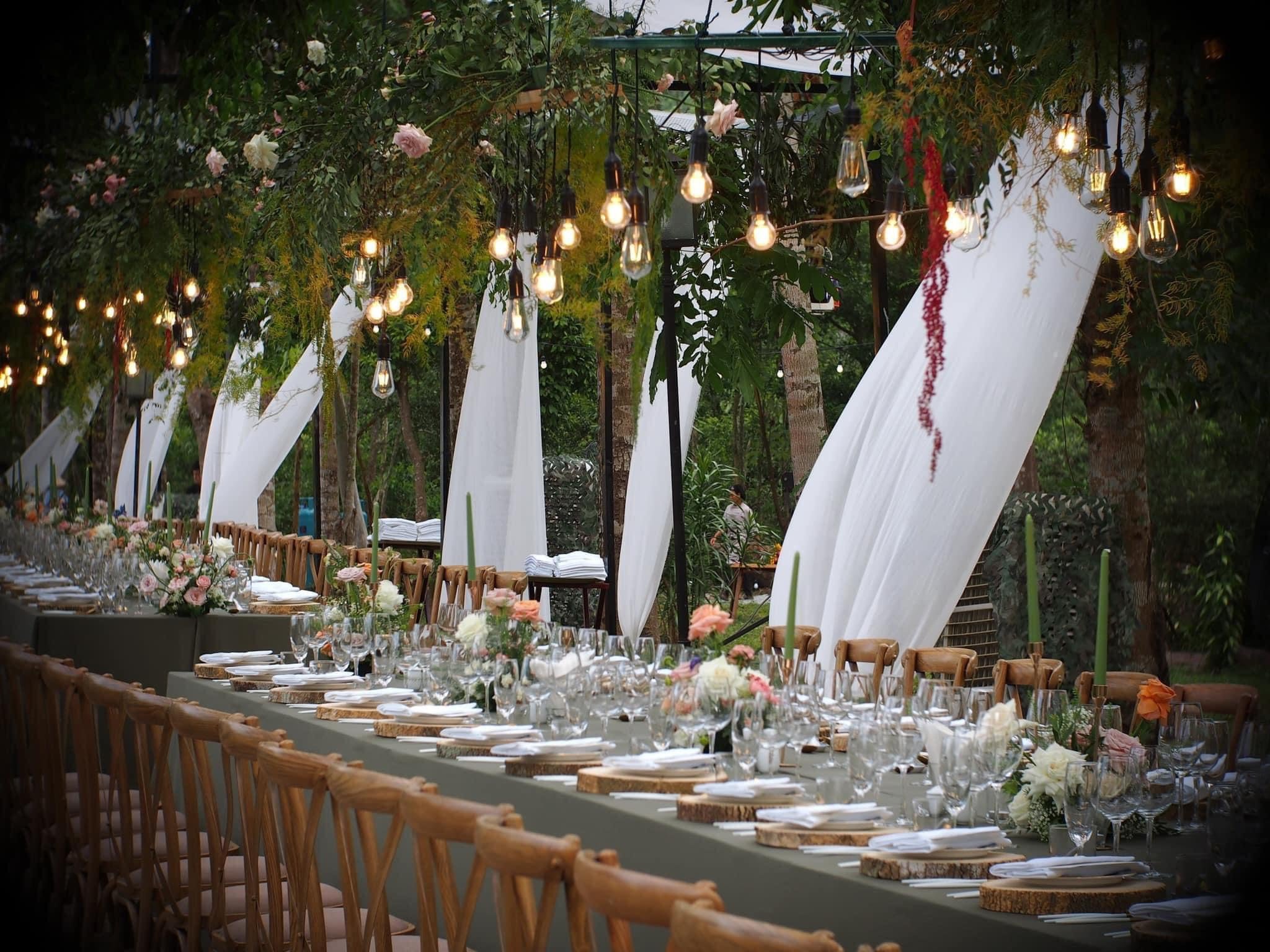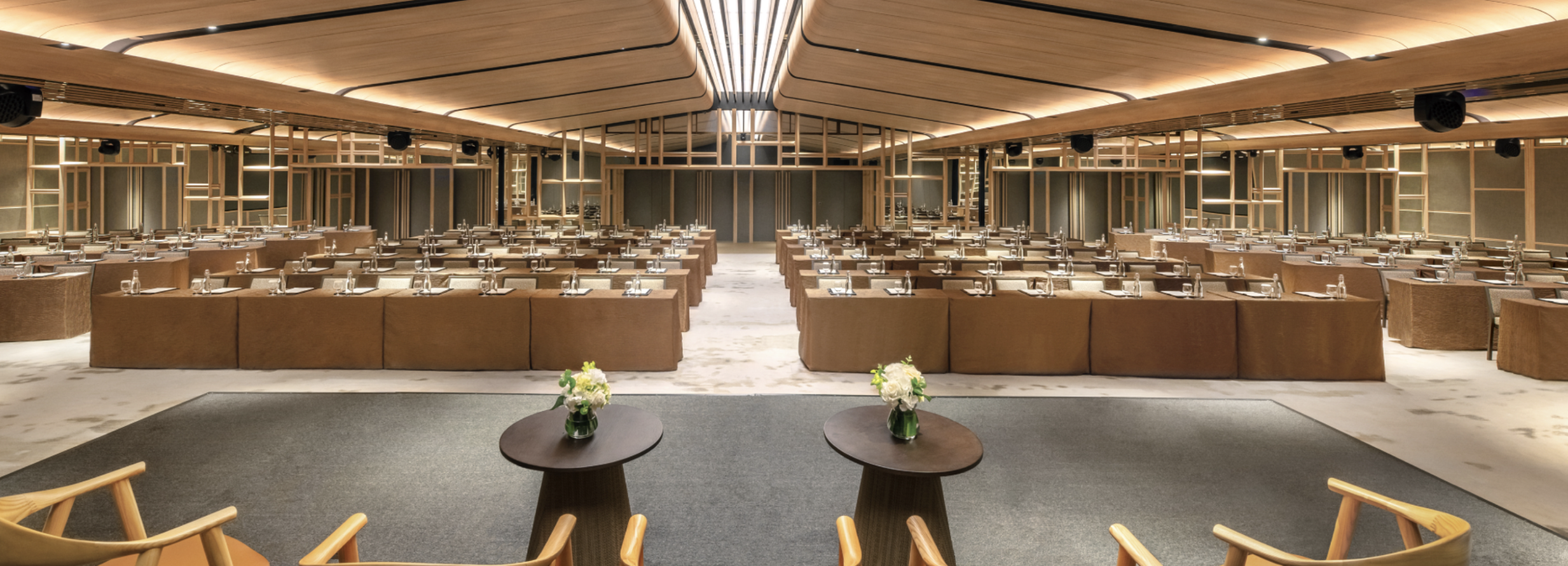Impress Guests & Increase Bottom Line With Eco-Conscious Event Services
Photo by: Six Senses Uluwatu Bali
With the return of in-person meetings, conventions, and events, hotel venues play an important role in ensuring that these events are as environmentally friendly and sustainable as possible.
Sustainable event planning not only helps to protect the environment but also provides customers with the assurance that the company they are supporting is working to reduce its carbon footprint and waste.
With careful planning and diligent effort, any hotel can make its events more sustainable without compromising on quality or service.
This article provides some hassle-free tips for hotels on how to plan an eco-friendly event that meets the needs of their guests and their sustainability ambition.
But first, let's look at the benefits of planning an eco-friendly event.
Eco-friendly events can help to reduce waste and conserve energy, water, and other natural resources.
This benefits the environment by lowering carbon emissions from manufacturing and transportation, as well as from customer travel and accommodation.
Sustainable events can help hotels save money in the long run by conserving resources and reducing costs associated with waste disposal.
Eco-friendly events demonstrate to customers and other stakeholders that the company is committed to sustainability.
This can help increase customer loyalty and improve brand reputation, as consumers are increasingly looking for ethical companies they can support.
Now let's look at how hotels can plan an eco-friendly event.
1. Engage With Guests, Team, And Partners From The Start
Bring the environment into the planning conversation by asking for their input and ideas on what should, could, and must be done.
Sarah Rhodes, Founder at Plastic Free Southeast Asia, says, “it is as much about engaging people and changing mindsets as it is about identifying the solution. When stakeholders believe they have been a part of the process, they are more likely to follow through.”
2. Use Eco-Friendly Materials And Locally-Sourced Products
Look for environmentally friendly options, such as compostable dishes or decorations made of recyclable materials, in everything from decorations to catering. Local sourcing helps to reduce transportation-related emissions while also supporting local economies.
Consider replacing single-use items like bottled water or paper towels (if applicable) with reusable glassware or cloth napkins that can be washed and reused after each event. Balloons, for example, are made of plastic and are extremely harmful to the environment. They should not be used as event decorations.
A wedding venue at The Apurva Kempinski Bali is decorated with eco-friendly papeteries from recycled materials, potted flowers instead of fresh-cut blooms, and wooden furniture; while natural fabrics drape for a touch of local charm.
3. Choose The Right Event Partners
Ensure that all event suppliers and partners share your commitment to sustainability. Inquire about their environmental practices and policies to ensure they are consistent with yours.
Encourage catering partners to use fresh, local, and organic ingredients in their dishes. Consider requesting that vendors provide eco-friendly packaging for their products and services.
Resorts World Sentosa offers eco-MICE packages, where guests are served meals in environmentally friendly packaging.
4. Eliminate Food Waste
Implement strategies such as proper storage (first in, first out), meal pre-ordering based on the estimated number of guests, and donation options for leftover food items following events. You can donate excess food by partnering with a local food bank.
Additionally, ensure that catering staff adheres to proper food waste disposal protocols so that any food scraps can be recycled or composted rather than ending up in landfills.
IHG Hotels & Resorts teams up with VietHarvest to reduce food waste and provide meals for communities in need in Vietnam.
5. Offer Green Transport Options
Transportation, according to the World Resources Institute, is a major contributor to energy sector-related greenhouse gas emissions. In fact, transportation is found to be responsible for the second-highest amount of gasses released into our atmosphere within the entire energy industry.
Encourage people to carpool to help reduce emissions from transportation to the venue. Make public transportation options available to guests by providing maps of nearby bus routes and train stations, or by forming partnerships with ridesharing companies that may offer discounts for large groups traveling from one location to another.
6. Take Advantage Of Natural Lighting And Green Spaces Onsite
During the day, instead of relying on built-in lighting, use skylights and window lights to save energy and bring in soft sunlight.
Create green areas in courtyards or gardens where guests can relax and enjoy the natural environment to add a special touch.
Alba Wellness Valley by Fusion in Vietnam is making the most of its location at the foot of Truong Son mountains to provide a stunning backdrop for weddings.
7. Utilize Energy-Efficient Equipment
Look into replacing older appliances with energy-efficient models to reduce the amount of energy used during events—this will help reduce electricity bills as well as greenhouse gas emissions caused by running inefficient systems at your venue.
Consider investing in LED lighting fixtures, which use 90% less energy than regular lights and last up to 25 times longer than incandescent bulbs.
Parkroyal Collection Marina Bay's Garden Ballroom is equipped with energy-efficient LED walls.
8. Go Paperless
Paper waste accounts for a staggering 26% of total waste accumulating in landfills around the world. Wherever possible, avoid using printed materials in favor of digital alternatives.
Encourage guests to use mobile apps or web-based registration instead of printed forms, and replace paper programs, brochures, and menus with digital versions that can be viewed on phones or tablets.
9. Recycle And Compost
Set up clear recycling and composting bins to encourage guests to dispose of their waste properly.
Make sure that staff is aware of the different bin locations for each type of material so that paper, plastic, glass, aluminum cans, and food scraps are all organized into their respective containers.
Interested in receiving more stories like above? Subscribe to Asia Sustainable Travel Briefing and be among the first to receive agenda-setting analysis and advice in your inbox.







